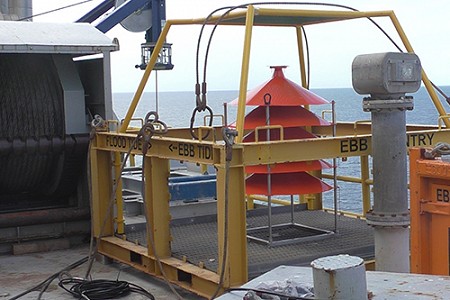The first in a series of offshore trials

Field Trial Success for Well Integrity Innovator
Sentinel Subsea, specialist in long-term well integrity verification, has announced the successful completion its first offshore field trial, run in conjunction with independent operator Spirit Energy and the Oil & Gas Technology Centre (OGTC).
As a growing number of offshore assets reach the late life stage of their lifecycle, so the number of suspended wells which require environmental monitoring also increases. Recognising the need to monitor suspended wells both efficiently and cost-effectively, Sentinel Subsea’s passive monitoring system is set to help the decommissioning sector dramatically reduce costs, whilst ensuring the marine environment safety.
Mitigating the requirement for regular, manual inspections, the company’s solution provides real-time alerts, should a suspended well’s integrity be compromised.
Sentinel Chief Executive Neil Gordon comments: “Following a successful onshore trial earlier this summer, this - the first in a series of offshore trials – has been equally positive, confirming the capability of our technology and the impact it will have upon well integrity monitoring.
“Environmental assurance and cost reduction are the two cornerstones of late life well activity and we continue to be impressed with the level of support provided by both the OGTC and Spirit Energy, as we work together to give the offshore industry the means to provide both.”
Willem Boon, Spirit Energy Intervention and Integrity Manager, said: “We are very pleased to support innovative solutions that improve long-term well integrity monitoring. This low-cost, low-risk and simple to deploy technology has a strong potential to positively impact the industry.”
Susi Wiseman, OGTC Decommissioning Project Manager, added: “The value in this incredible piece of technology is multi-faceted. In addition to the cost savings associated with a passive monitoring system, the confidence it engenders will encourage operators to deploy alternative barriers technologies.”


